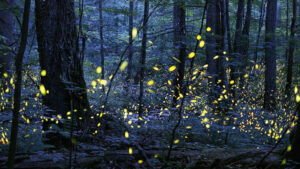The Australian box jellyfish is the most venomous marine animal on earth. It “locks the heart”, and even defibrillators won’t help.
Last month, an unnamed 17-year-old was swimming around Bamaga, near Cape York, the northern tip of Australia, when he was stung by a box jellyfish. The National Ocean Service considers this particular species, Chironex fleckeri, the most venomous marine animal in the world.
The Royal Flying Doctor Service stabilized him at the scene and transferred him to a hospital, but he died there a week later.
The last recorded fatality in Australia from this species was in 2006. It also occurred at Bamaga. Australia began recording box jellyfish fatalities in the 1800s. This was the 79th.
Dr. Lisa-Ann Gershwin, a marine biologist and leading expert on jellyfish, explained that the venom from box jellyfish “locks the heart” into a contracted state. This means that CPR and defibrillators won’t work. The venom works so fast that in most cases, treatment isn’t successful. In Australia, you are more likely to survive a bite from a funnel web spider than from a box jellyfish.

The last two fatalities from Australia box jellyfish have been in Bamaga. Photo: bbc.co.uk
Gershwin added that the death would have been preventable if remote communities had the resources that are common in the more populated areas, including education programs, stinger nets, and protective clothing.
“Up on the cape, sadly, we really don’t [have anything in place],” said Gershwin. “We have miserably failed, and this poor young man, and his family, and his community are paying the price.”
Box jellyfish occur in the waters off northern Australia. The so-called “stinger season” runs from October 1 to May 31. A single sting can cause skin necrosis, and a large enough quantity of venom will lead to cardiac arrest and death within minutes.
Of the more than 50 species of box jellyfish, only a few have venom that is lethal to humans. The Chironex fleckeri is the largest species, with tentacles up to three metres long. These tentacles are covered in tiny darts loaded with poison (nematocysts), which can be fired into the prey at more than 60kph. The toxin causes a spike in blood pressure, seizing up the heart.
Dr. Angel Yanagihara of the University of Hawaii is the world’s foremost expert on box jellyfish. She notes that they do not inject venom like other animals, such as rattlesnakes. Instead, it releases a “digestive cocktail” that causes holes in all our cells. Scientists are still unsure as to why some box jellyfish cause more dangerous clinical syndromes. Some researchers have suggested that certain species, including Chironex fleckeri, inject their venom more deeply than others.
What makes box jellyfish particularly dangerous is that they do not float passively –- they move. They open and shut their bells (heads) to propel themselves through the water.
Unfortunately for beachgoers, experts warn that their numbers are increasing, and so are incidents with multiple people stung at the same time. Without better education, they believe that swimmers, surfers, and other water lovers are increasingly at risk.






